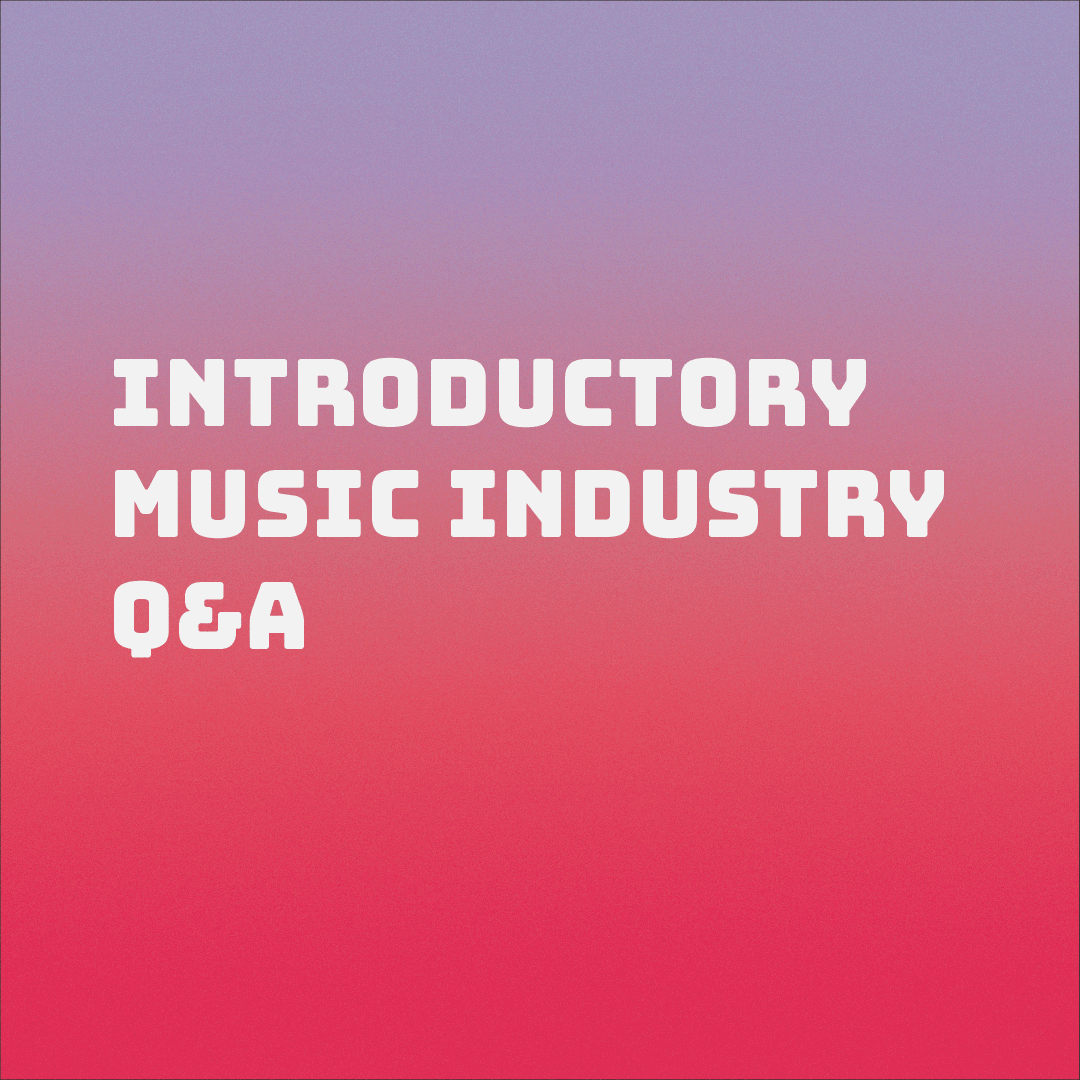To be successful in the music industry, you need to understand how it operates. Networking, career paths, independent releases, and shopping for labels are all valuable knowledge whether you’re an artist, producer, or industry exec. To help you get started on your journey, we’ve sourced and answered some of the most frequently asked introductory music industry questions on Quora.
What are the secrets to becoming successful in the music business?
Two of the essential elements necessary for attaining success in the music business are perseverance and tenacity. Whether you’re a performing artist looking to gain international acclaim, or a music industry professional looking to become an executive, you have to focus on long-term goals and commit to being patient when journeying on what is a long and windy road. Practice and the time you put in will pay dividends in the end. You should also, be realistic, know your potential, and acknowledge that there is tremendous competition – and use this knowledge to keep you grounded and focused.
What careers in the music industry pay the best?
Like other industries, there are many lucrative careers options; however, they depend on one’s success in a particular field. Some positions include entertainment attorney, hit songwriter/producer, film composer, entrepreneur, manager, label/publishing executive, and many others. Check out our Work page to get more insight into the various industry careers or get a quick run-down here.
Has streaming changed the music industry for the better?
Streaming has given consumers unlimited access to music, and, as a result, artists now have a major opportunity to reach new audiences no matter their geographic location. They also have access to, and can interact with, countless fans and listeners globally. While major record companies and labels have the upper hand when it comes to resources and outreach, independent artists can find effective ways to leverage the streaming field and grow their following.
What are some facts worth knowing about the music industry?
It’s an industry that continues to grow at a rapid pace. Not surprisingly, the popularity of streaming music is only increasing; according to IFPI, by the end of 2020 440 million people were using streaming platforms. Also, there are over 60k tracks added to Spotify every day, which results in approximately 22 million new songs being added to the platform’s catalogue by the year’s end. Given these numbers, the massive growth this sector has seen is unsurprising.
What is a great way of networking and gaining essential contacts in the music industry?
Begin building your contacts and relationships early on in your career. You will frequently find that many of your peers and friends will become longtime business acquaintances, associates, or partners. Also, be respectful of everyone and anyone. Treat others how you wish to be treated. In doing so, people will remember you in the future, and you may come in contact with them for business purposes or other endeavours. Finally, don’t be afraid to ask questions or reach out to new people to make new connections.
What is the best way to maximize a release?
Plan, plan, plan. Before any release date, you should have formalized a cohesive release schedule. Allow yourself ample time to pull together the necessary promotional materials and have your social media strategy in place. Also, given the high volume of music releases, allow plenty of time to schedule your release via your distribution service. Finally, factor in any outreach to press or influencers who may help spread the word.
Should I self-release or try and get a deal with an independent label?
Currently, either option is viable. Should you wish to go with an independent label, determine what the label could do for your release beyond what you are able to do on your own. That could be anything from financial support/advertising, geographic location and support (digitally and yes, physically), social media promotion/amplification, pitching to playlists, and the press, etc. All of these areas can be tackled independently. If you’d like a more detailed account of what independent labels can do, read our interview with Hot Tramp‘s label owner here.
However, depending on the artist and situation, it may make sense to partner with a label that has a team of people who can provide substantial support (and expertise) to maximize the reach/impact of a particular album release.
If I were to shop my project to a label, what are they looking for / what are some ways to get signed to a music label?
Generally speaking, labels look for artists who have developed themselves artistically and who have managed to cultivate and grow an active audience/following. Less is done in the area of artists’ development, and artists who have already built an active fanbase are typically more attractive. From there, labels can leverage their marketing, promotional and editorial power (as well as creative guidance in many cases) to maximize the artist’s visibility. Social media and statistics are key, so it’s important to focus on building and maintaining an active audience and streaming numbers. Once you’ve achieved this goal, interaction with a label via social media can often lead to a business relationship of some sort.
Are there any courses that teach the music industry?
RAC provides a comprehensive music industry course that covers all aspects of the field, including entrepreneurship should you choose to go that direction. Given the fluidity of the music industry, it can be helpful to have a rounded perspective and broad approach when entering the field and determining what areas suit you most and are of interest to you. Furthermore, knowledge of entrepreneurship (the business in general and its practices) can serve you well in the event you wish to start your own enterprise.
Who are we?
Recording Arts Canada is a sound and music production college that offers an online or on-site program with campuses in downtown Montreal and Toronto. Our program combines essential theory, vital hands-on training, and career support, so you can start landing professional opportunities within a year. You can apply for our next cohort here.
Have a music industry question? You can request we answer your question on Quora, and we’ll get back to you as soon as we can.






















